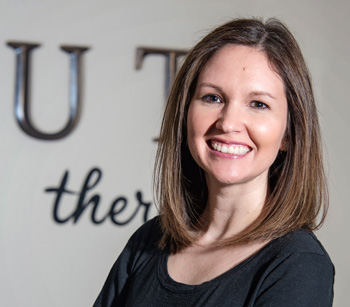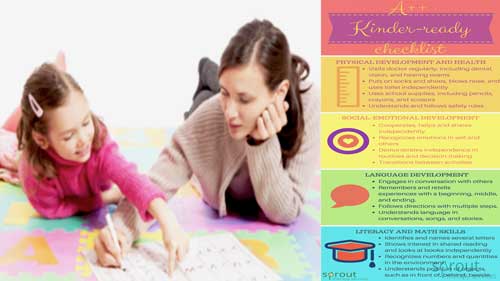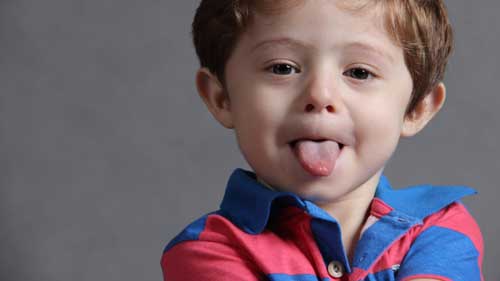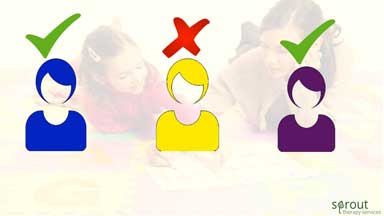We're Moving, and Expanding! |

What's Better for my Child, School or Private Speech Therapy
From Colorado Springs, CO
Ask a Speech Therapist

|
By: Rikki DeGrove, MA, CCC-SLP , Sprout Therapy Services , Sprout Therapy Services, |

Speech-Language Pathologists (SLPs) work in many different settings including: schools, hospitals, skilled nursing facilities, residential facilities, outpatient clinics, patient homes, and private offices; some of us even work in aquatic centers, horse riding facilities, or prisons!
Whether your child receives speech therapy at school or privately, know your therapist must meet the same qualifications. Certified SLPs must complete at least a Master’s Degree in Speech-Language Pathology and meet the requirements of the American Speech-Language Hearing Association (ASHA) for practicing. Also, many states, including Colorado, require licensing by a board or department of regulations.
Before answering today's question, I want you to understand the differences between educational (school) and private speech therapy.
Educational Speech Therapy Model
Educational Model: Eligibility
In order for a student to be eligible for school-based speech and language services, he/she must:
1) Have a disability.
2) Because of the disability, demonstrate a need for specialized or special education services in order to have reasonable access to general education.
Eligibility for school-based speech therapy is based on test scores, observation in a variety of communication settings, parent interview, teacher interview, and/or student interview. There may be a threshold (or "cutoff") score for determining eligibility, such as "1.5 standard deviations below the mean" or "below the 7th percentile." There must be a documented adverse effect of the student's speech, language, fluency, or voice impairment that prevents the student from accessing or performing in the general education curriculum.
Educational Model Treatment
In the educational model, goals and frequency of speech sessions are determined by the SLP and other members of the IEP (Individualized Education Plan) team, including teachers, administrators, other school professionals (counselors, social workers), and parents.
Goals are written in an IEP and are targeted by the Speech-Language Pathologist and other collaborating professionals including the teacher and paraprofessionals who work with the student. IEP goals are reviewed every year and progress notes are sent home regularly, according to the school district’s policy. Students are re-evaluated every 3 years.
Treatment sessions are conducted on school grounds and may be in small groups of students or one-on-one (depending on the IEP), and students may be pulled out of their regular classroom during the school day to receive services. Sometimes an SLP may go into the student’s classroom and provide services during regular instruction through collaboration with the teacher.
Private/Medical Speech Therapy Model
Private Model Eligibility
In a private setting, SLPs are able to consider more than educational need when determining if a student needs speech therapy. Need is determined by:
1) The clinical judgment of the individual SLP after reviewing parent and patient input, standardized and non-standardized measurements, and observations of functional performance.
2) There may not be a specific cutoff score or severity rating. Therefore some children who do not meet criteria for eligibility at school may still be eligible for private speech therapy services.
Private SLPs will interview parents/caregivers and the patient and review their health history and medical records. They will also seek input from the patient’s doctor, dentist, or any other medical specialist they have seen. In addition they will review the patient’s academic performance, standardized testing, and/or sampling of language, speech, fluency, voice, and feeding/swallowing.
Private Model Treatment
In the private model, treatment goals and frequency of therapy sessions is determined by the SLP with input from other medical professionals, as well as the patient and parents/caregivers. Goals and frequency are focused on more than educational need.
Private SLPs record goals in the patient’s Plan of Care. Family input is important in creating the plan of care because home programming is vital to the patient’s success in seeing speech/language improvements in daily life situations. Progress notes and/or re-evaluations take place at regular intervals determined by the SLP or facility’s policies, or when the patient has demonstrated a significant change. It is customary for patients to be re-evaluated every year, but this may vary by location.
In the private model, treatment sessions are usually one-on-one and take place in the SLP’s office, hospital, residential facility, or patient’s home. Sessions may even take place on a playground, on horseback, or in the pool! Group sessions may also be available for patient’s working on similar goals who may need to practice with peers.
One of the bigger differences between school and private speech therapy is parent interaction with the SLP. Because parents/caregivers typically take their child to therapy sessions, they can be trained how to help the patient at home, as needed based on the patient’s Plan of Care.
Is School Speech Therapy Enough?
What if your child isn’t eligible for therapy in school? Or what if he/she needs a different approach? Check out this list of 8 reasons private speech therapy may be right for your child.
Are any of these true for you?
1) My child has speech/language needs that are outside the scope of the school-based therapy model.
2) My child would benefit from a specialized approach that is not available in school.
3) My child needs a specific setting in order to target his/her goals. Example, access to natural environment such as in the home, or a less distracting one-on-one setting in a private office.
4) My family’s participation and carry-over of skills would improve if we could attend therapy sessions regularly with my child.
5) It would be better for my child to have therapy sessions outside of school hours, so as not to miss out on instruction or extra-curricular activities with peers.
6) My child needs consistent therapy, even during school breaks and summer vacation.
7) I prefer that my child’s need for speech/language (voice, fluency, etc) therapy not be documented in his/her school records.
8) I prefer to choose my child’s therapist based on the therapist’s qualifications, specialties, personality, and motivational style and how he/she bonds with my child.
If you answered yes to any of those statements, private speech therapy might be a good fit for you and your child. If you live in Colorado Springs, and you would like to give private speech and language or orofacial myofunctional therapy a try, call us today to set up an evaluation -- 719-999-8417.



